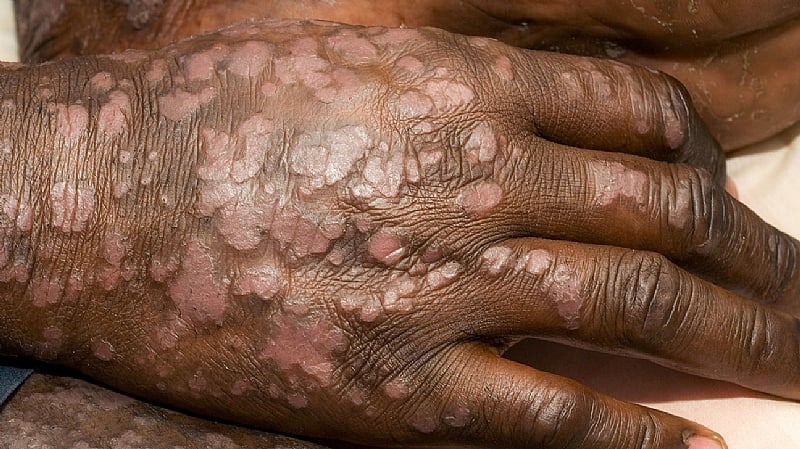In observance of World Psoriasis Day 2024 on November 2, the Psoriasis Association of Ghana (PAG) organized an awareness walk and educational forum under the theme “Psoriasis and the Family.” This initiative aimed to illuminate the profound effects that psoriasis has on both patients and their families. The event served as a platform where attendees were educated on various aspects of the condition, particularly preventive measures, and the essential role of empathy in treatment approaches. It emphasized the pervasive stigma surrounding psoriasis and equipped families with strategies to support their loved ones effectively. With conditions associated with both emotional and physical ramifications, the initiative highlighted that addressing such stigma is crucial for enhancing the quality of life for individuals battling the disease.
Psoriasis is characterized as a chronic autoimmune skin condition that manifests through red, itchy, and scaly patches across different body areas. The condition does not discriminate based on gender, but it is frequently accompanied by misconceptions and social stigma. This lack of understanding can restrict the patients’ access to necessary treatments, forming a dual obstacle—both societal and financial. According to Ms. Ruth Abekah, the financial burden is considerable, with average monthly treatment costs ranging from 1,500 to 2,000 Ghana cedis, soaring up to GHS 2,500 for those grappling with severe cases. Ms. Abekah urged government action to alleviate this financial strain and called for the inclusion of psoriasis treatments under the National Health Insurance Scheme (NHIS), advocating for equitable healthcare access.
Understanding psoriasis is vital for demystifying the condition and alleviating the stigma attached to it. According to the World Health Organization (WHO), psoriasis is a lifelong disorder primarily triggered by an overactive immune system that causes rapid skin cell turnover. While its precise causes are not entirely understood, both genetic predisposition and environmental factors are significant contributors. Common triggers include stress, obesity, infections, certain medications, smoking, and heavy alcohol use. Symptoms of the disease vary in intensity and can lead to significant physical discomfort, including red patches with silvery scales, dry and cracked skin, and in more severe cases, swollen joints indicative of psoriatic arthritis.
While psoriasis lacks a definitive cure, adherence to preventive measures can alleviate symptom severity and reduce flare-ups. Among the outlined strategies are the promotion of a healthy lifestyle—incorporating a balanced diet and regular physical activity—as well as effective stress management techniques. Avoiding known triggers, such as smoking and excessive alcohol intake, along with the consistent application of moisturizers and adherence to prescribed medications, plays a crucial role in managing the condition. The educational forum facilitated discussion about these preventive measures, allowing families to better comprehend how they can contribute to the well-being of their affected relatives.
Treatment for psoriasis generally involves a combination of various therapies ranging from topical treatments, phototherapy, to systemic medications depending on the individual’s case severity. However, the financial implications of these treatments can be daunting, especially for those in lower and middle-income countries like Ghana, where healthcare resources are often limited. Many patients find themselves at a crossroads, having to choose between managing their condition adequately and facing economic hardships due to high medical costs. This situation underscores the urgent need for reform and support within the healthcare system to assure that all patients can access necessary therapies without excessive financial strain.
In conclusion, the observance of World Psoriasis Day by the Psoriasis Association of Ghana was not merely an acknowledgment of the condition but a crucial step toward fostering awareness and understanding within the community. The event aimed to bridge the gap between public perception and the reality of living with psoriasis, emphasizing the importance of compassion and shared knowledge. By engaging with families and providing invaluable educational resources, this initiative plays a pivotal role in combating unhelpful stereotypes while advocating for better support systems for affected individuals. Ultimately, fostering an informed community that understands psoriasis can transform the treatment landscape and cultivate an environment of respect and support for those living with the condition.














